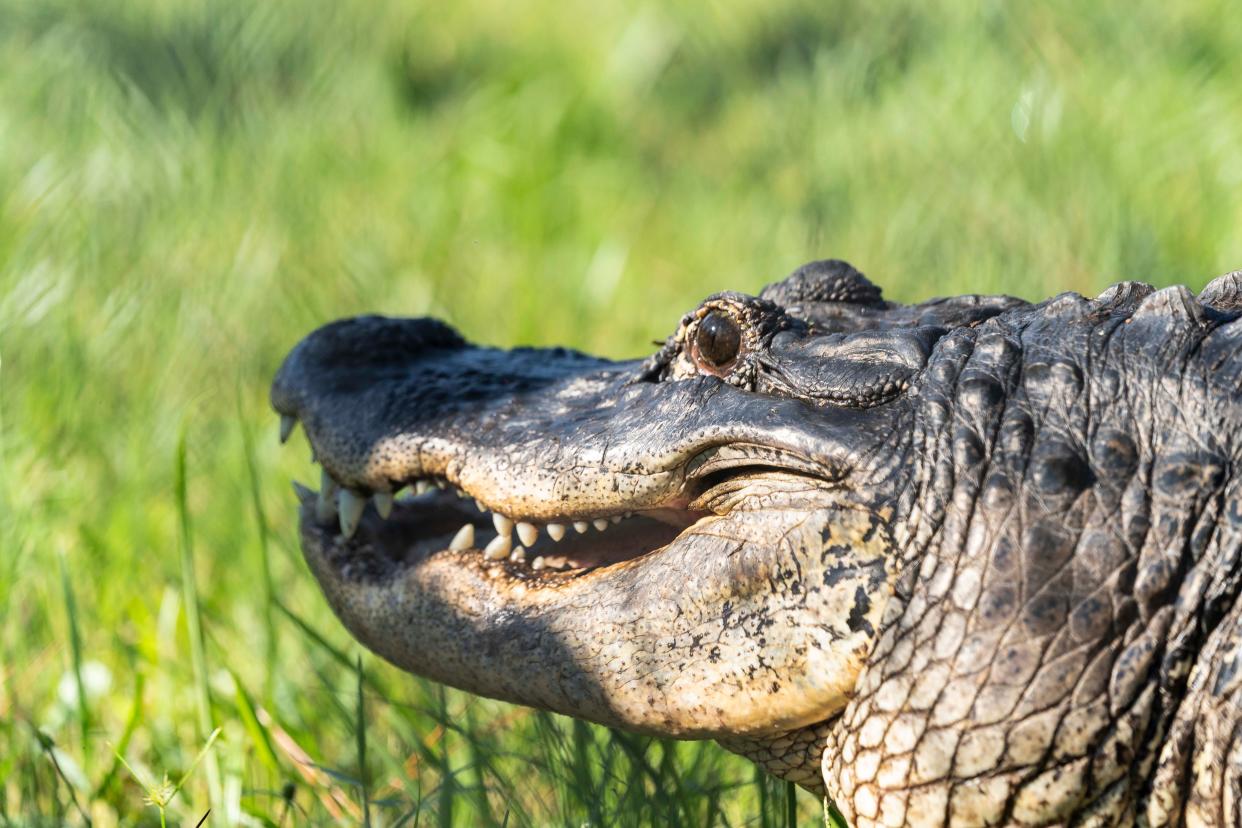Video shows alligator hanging out on Florida beach. Do gators swim in the ocean?

Nothing sums up a perfect Florida beach day like good weather, nice waves and … an alligator?
A unexpected pair of jaws shut down Hillsboro Beach, a town in Broward County, on Monday as law enforcement and wildlife officials captured the reptile.
Hillsboro Beach Police issued an alert to residents Monday morning, asking those to use caution as they notified the Florida Fish and Wildlife Conservation Commission about the situation. The sighting occurred in a section with no public access to the shore, mainly surrounded by private residences.
According to reports, officials were able to capture the 6-foot alligator around 1:15 p.m.
More Florida beaches gators have enjoyed 9-foot crocodile in Satellite Beach: 'It kept hiding. It took 4 hours' to safely remove it
Can alligators be in the ocean in Florida?
While they are not typically found in the ocean, it isn't uncommon for the rare reptile to venture into saltwater environments.
"While alligators can tolerate salt water for a few hours or even days, they are primarily freshwater animals, living in swampy areas, rivers, streams, lakes, and ponds," the National Oceanic and Atmospheric Administration writes online.
Alligators don't have salt glands, so they can't survive full-time in salt water.
Why would an alligator ever be in the ocean?
Alligators can move back and forth between both marine and freshwater ecosystems for two reasons: to rebalance their salt levels and to feed. They have been known to snack on sea turtles and fish found in the ocean.
They can also get turned around when swimming out in brackish water, which is a combination of salt and fresh water. Once they end up in the ocean, they will search for their way back.
Was this gator released back into the wild?
According to reports, the gator was safely transported to the back of a truck and then released back into a river in the Everglades.
How many alligators are in Florida?
Florida has about 1.3 million alligators, according to data from the FWC.
How do Florida Fish and Wildlife Conservation Commission officials remove alligators?
Run by the FWC, the Statewide Nuisance Alligator Program “uses contracted nuisance alligator trappers throughout the state to remove alligators from locations where they are unwanted or unwelcome.”
To remove the alligator, FWC first needs permission from the property owner.
According to FWC, “an alligator may be considered a nuisance if it's at least 4 feet in length and believed to pose a threat to people, pets or property.”
When alligators fit the "nuisance" criteria and are captured by FWC contractors, they are euthanized. Killing the animal does not have a “significant impact” on that state’s alligator population, according to the agency. Relocating these reptiles is not an option, as alligators “often try to return to their capture site.”
Call the Nuisance Alligator Hotline at 866-FWC-GATOR (866-392-4286) if you see an alligator where it's not supposed to be.
This article originally appeared on Fort Myers News-Press: Video shows alligator captured after swimming in South Florida beach

